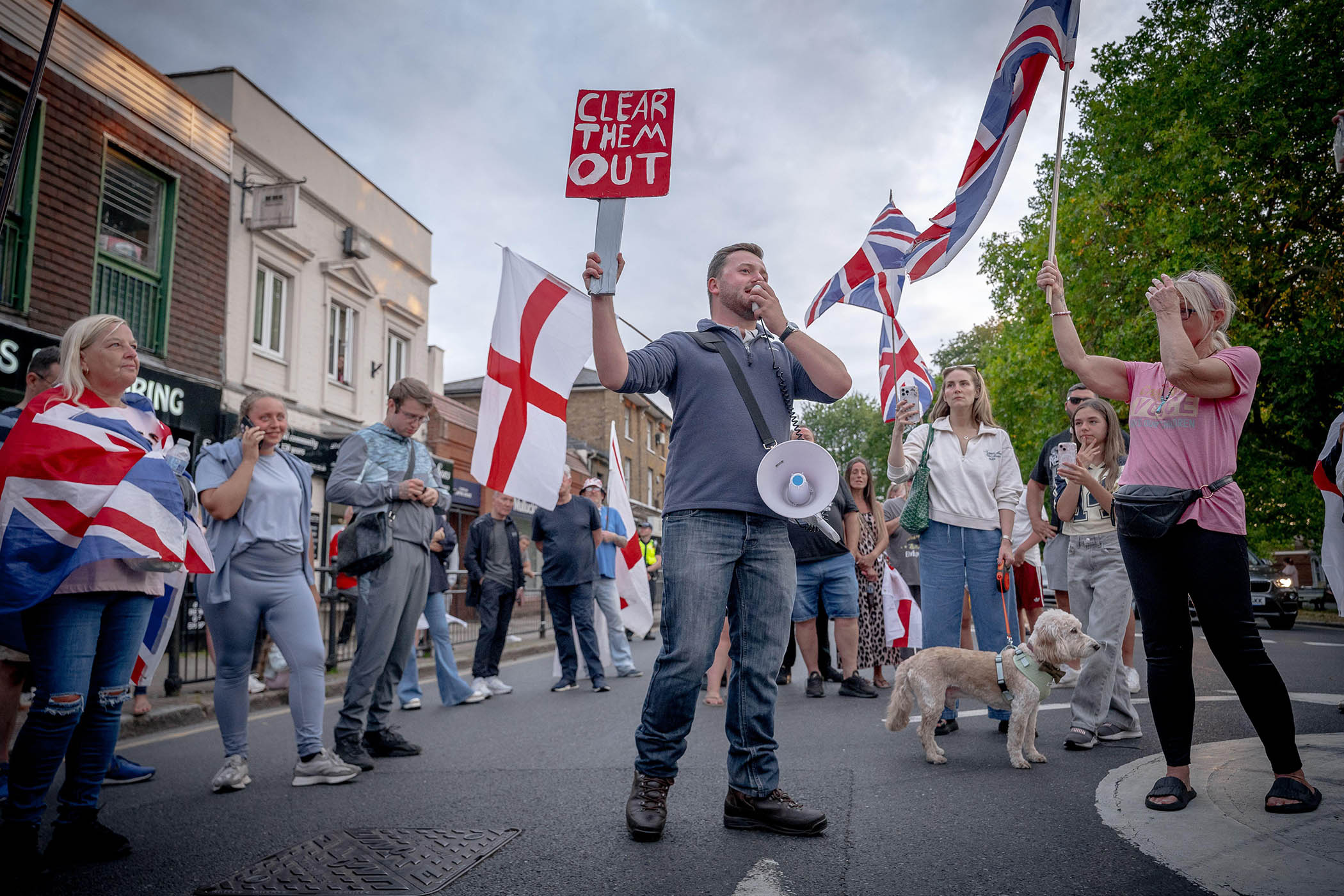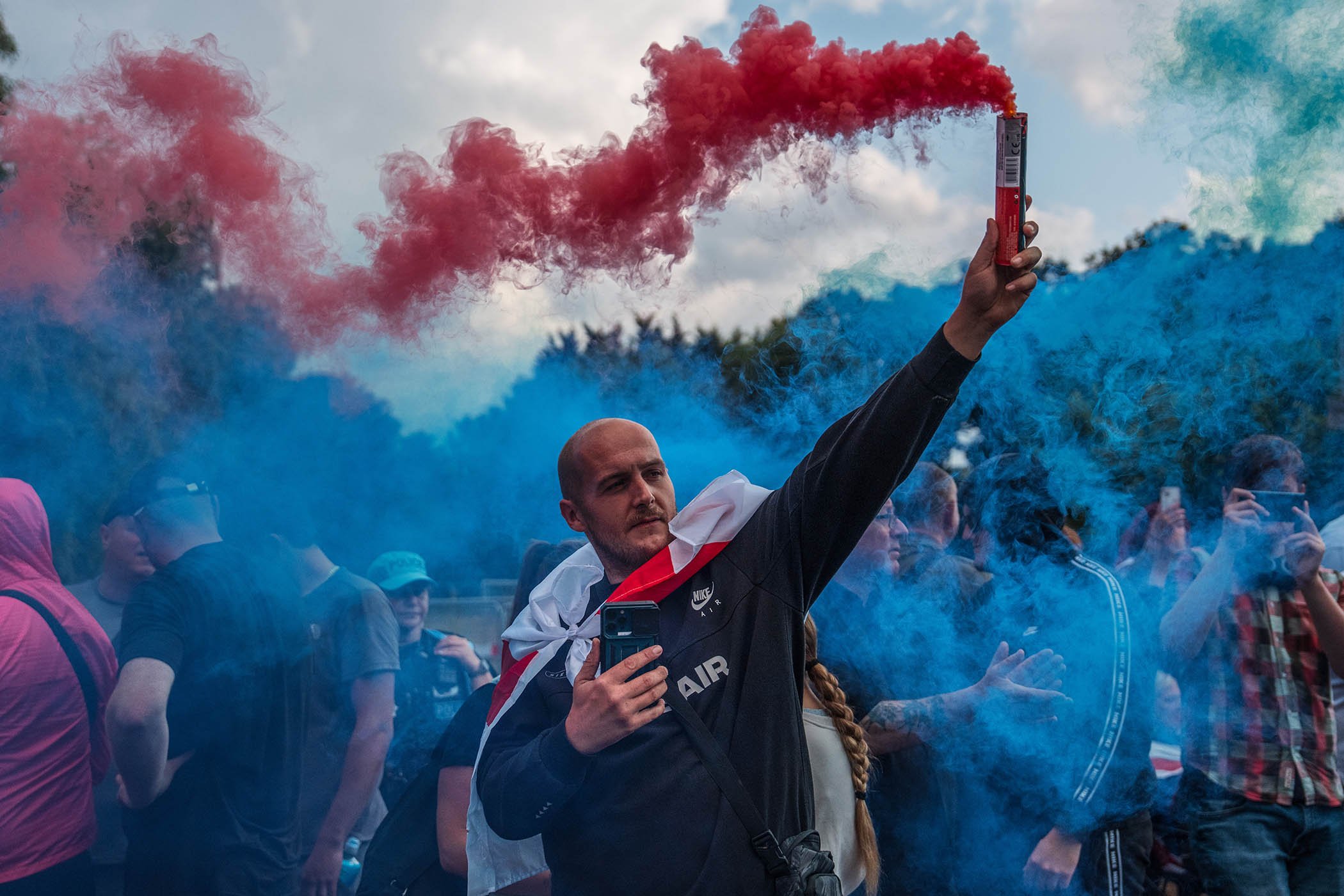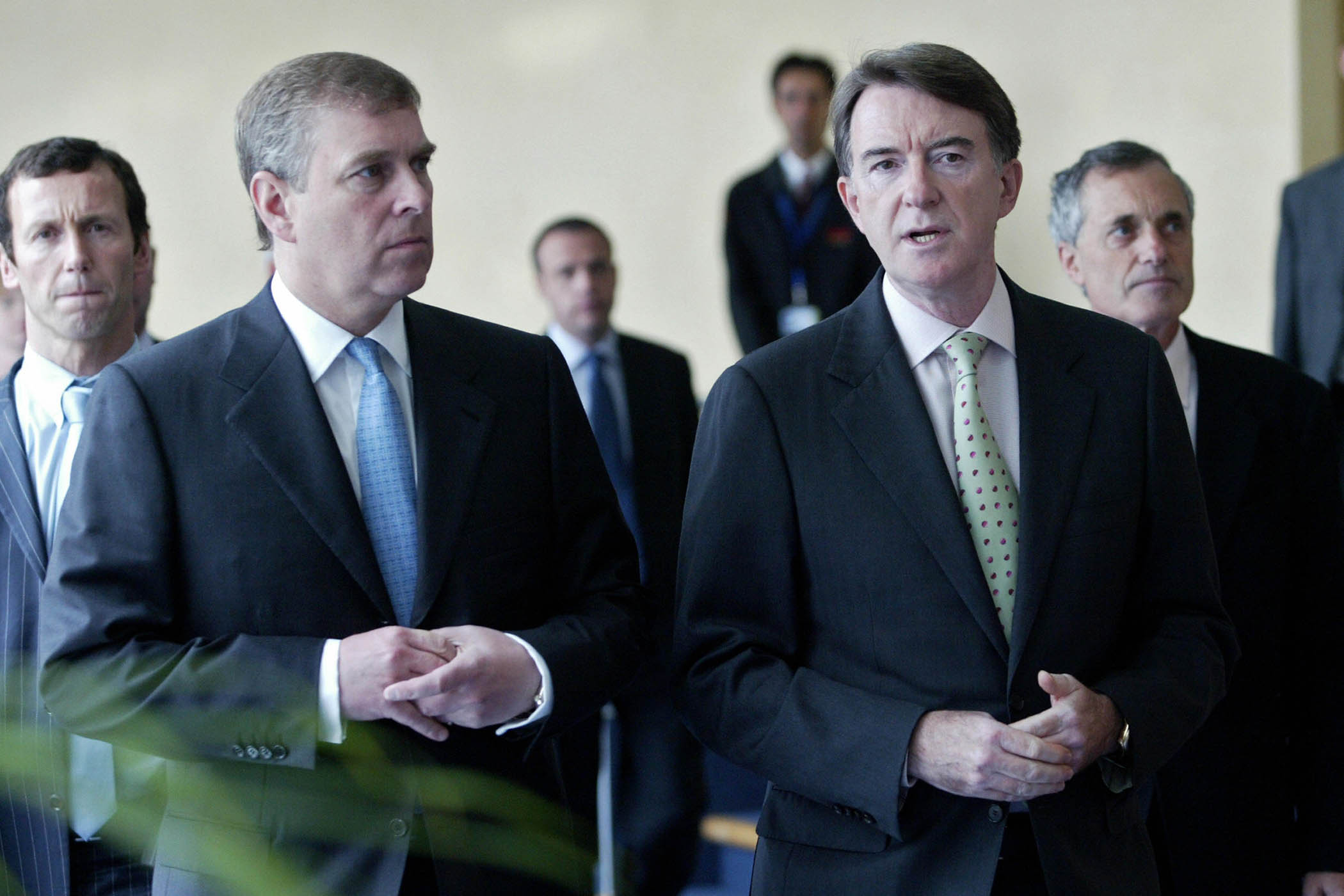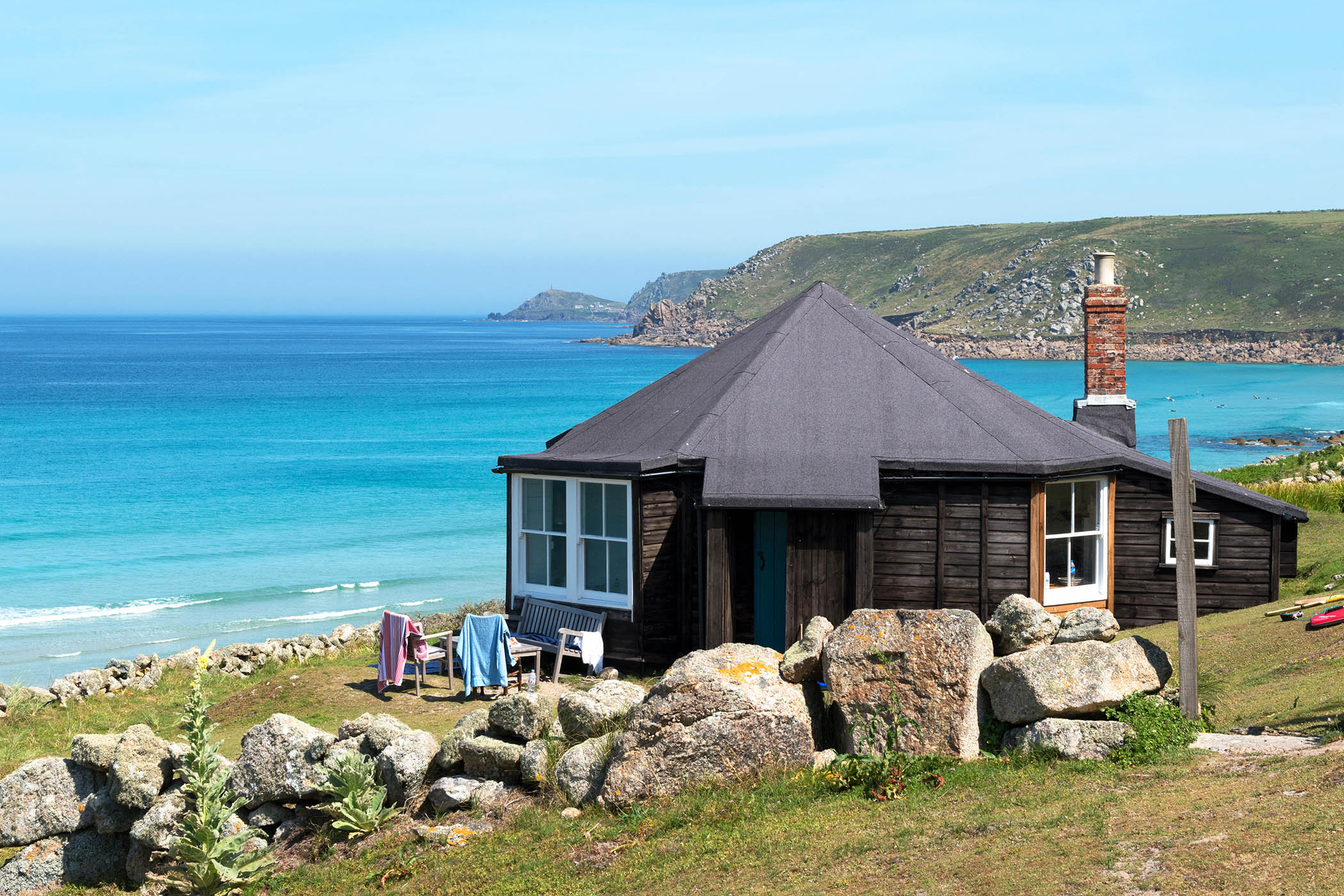At an afternoon tea in a church hall in Epping in October, a married couple met one of their neighbours for the first time and bonded over their shared ordeal.
The event had been organised by Epping for Everyone, a group of mainly liberal-minded people, embarrassed to live in a town suddenly famous for its opposition to undocumented migrant men.
Much of the conversation was about how and why Epping became the focal point for a nationwide summer of protests against migrant hotels.
One Epping for Everyone member said the protesters seemed to come from elsewhere: “I don’t think there’s one face I recognise from the high street.” Another said: “Follow the money,” without suggesting where the trail might lead.
It might be comforting for Epping’s liberals to assume that powerful outside forces have been at work, manipulating local discontent. But is it true? Or do the Epping protests speak, if not for everyone, then perhaps for a majority, here and across the country?
Epping’s location in the north-east corner of the London tube map is deceptive. It is in the county of Essex, well-off but unpretentious. On the high street, there is a Gail’s bakery, but also a Greggs, and the town’s weekly street market might occasionally include stalls selling artisan foods but more often bed linen, cheap slippers and ready-reader specs.
The area’s down-to-earth, entrepreneurial culture is typified by Adam Brooks, an Epping Forest pub landlord turned “citizen journalist” with a bigger following on X than the BBC’s political editor, Chris Mason. Brooks is one of the reasons a summer of protests kicked off in Essex.
Many in the area remember him as the proprietor of the now defunct Nu Bar in neighbouring Loughton. His profile rose with the launch in 2010 of the reality TV show The Only Way Is Essex. He did not appear in the series but many of its stars were his friends and customers.
This, combined with Brooks’s early mastery of what was then Twitter, helped turn what had been an unremarkable local pub into a glamorous destination for Premier League footballers and celebrities.
After he sold the Nu Bar and bought a pub, he turned his social media skills to politics, tweeting in favour of Brexit and against Covid lockdowns. These days, Brooks is a regular panellist on GB News. On Substack, his tagline states he is “navigating the snobby world of the British media”.
Newsletters
Choose the newsletters you want to receive
View more
For information about how The Observer protects your data, read our Privacy Policy
Talk of a mini crimewave created a sense of a way of life under threat
Talk of a mini crimewave created a sense of a way of life under threat
Locally, his political influence has been significant. “I got involved in the protest because of Adam Brooks,” says Orla Minihane, ex-vice-chair of the Epping Forest branch of Reform UK.
Minihane and Brooks have known each other for years. His cousins are friends of her family. Her son worked in one of his pubs.
Frustrated that Reform did not field a candidate in Epping Forest at last year’s general election, Minihane helped organise the party’s local launch. Hundreds turned up to a meeting in October 2024 in Brooks’s pub; according to Minihane, they had to “turn people away”.
They were angry about the cost of living crisis, an overwhelmed NHS and the welfare bill. The number of asylum seekers arriving in small boats had also begun to rise again.
Five months later, a Home Office contractor block-booked the Bell hotel for more than 130 male asylum seekers. Almost immediately, Minihane says she heard stories of audacious shoplifting sprees by hotel residents. Epping is the sort of low-crime area where a Tesco trolley can be borrowed without a £1 coin. So talk of a mini crimewave created a sense of a way of life under threat. Police and a local supermarket told The Observer they did not recognise the specific incidents that some of the hotel’s opponents said they had witnessed. But there was an arrest in April of an asylum seeker living at the Bell for arson with intent to endanger life. And then there was the event that would change everything and trigger a summer of protests: the arrest in July of an asylum seeker for the sexual assault of an Epping schoolgirl.
Minihane heard the news from Brooks. He suggested they meet at the Bell to find out what was going on. With his smartphone and bluetooth mic, Brooks reported the developments on X. A few hours later, he tweeted: “My videos on the local migrant hotel have had a MILLION views on my socials alone.”
The next day, the police announced that Hadush Kebatu, an Ethiopian man who had arrived in the UK on a small boat and was being housed at the Bell, had been charged with sexual assault against a woman and a 14-year-old girl.Kebatu would later be convicted, mistakenly released and then recaptured and deported after a highly publicised manhunt.
But in the days after the charge, word spread on WhatsApp and social media that there would be a protest at the hotel. Hundreds gathered to call for the Bell’s closure. This first protest was peaceful. But at the second, a group of men violently attacked the police and their vehicles.
Mingling with the crowds were activists from White Vanguard, described by research and campaigns group Hope Not Hate as “a tiny but extreme neo-Nazi” organisation. Also present was Callum Barker, a 22-year-old building site supervisor who lives with his parents in Epping. He is also a former member of Homeland, a registered political party described by experts as ethno-nationalist.
Craig McCann, a Conservative councillor who lives two miles outside Epping and used to work as a counter-extremism detective chief inspector in the Metropolitan police, went to the Bell to take a look, assuming the protesters were mainly far-right actors from outside the area. But he also saw friends and neighbours, not chanting or waving placards, but standing in small groups chatting. Drivers who passed the protesters frequently sounded their horns in support.
Minihane says she had no idea who Barker was when he identified her as one of the protest’s instigators. He offered her a megaphone and suggested she use a nearby flatbed lorry as a stage. “If I’ve got to wear a far-right title,” she told the crowd, “because that’s what the narrative is, then so be it.”
Barker stood behind her and their proximity was captured on video. “Within a few hours, it was all over the internet that I was associated with a far-right activist,” she says.
Online, Barker became known as “the lion of Epping”, and Minihane decided she would take him under her wing and try to moderate him. But to repair the damaging image of the protester violence, the wider movement needed to be involved.

Callum Barker of Homeland Party speaks to anti-migrant protesters in Epping
According to Minihane, Brooks contacted her the next day to say they needed to change the narrative about the protests. “ So that’s when we then created these WhatsApp groups with people that wanted to be involved.”
Minihane says she addressed 200 supporters on an emergency group call. She told them the message needed to be that this was about women and children feeling vulnerable, due to the men housed in the Bell.
To the protesters’ opponents, it would look like an attempt to play into crude stereotypes about foreign men. But in Minihane’s mind it was the way to counter a stereotype about protesters: “ I said we can’t have this narrative being spun about us being rightwing thugs.”
At the next protest, Minihane ensured women stood at the front of the crowd. Many were holding homemade banners with slogans such as “Save our kids.” At subsequent protests, the women wore pink. They linked up with other protesters in London’s Canary Wharf and Cheshunt in Hertfordshire to form a “Pink Ladies” network.
A myth persisted that the violence of the second protest had been caused by outsiders, even though most of those arrested for public order offences were local people.
A core of protesters from the Epping Forest area continued twice-weekly demonstrations throughout the summer. There were chants of “Tommy, Tommy, Tommy, Tommy Robinson.” The man himself never came, but some of his closest associates came to show their support, including Liam Tuffs, a former nightclub bouncer who now works as the manager of a security company in Sussex.
‘Ideologies and skin tones are completely different things. We’re trying to solve a cultural problem here’
‘Ideologies and skin tones are completely different things. We’re trying to solve a cultural problem here’
Liam Tuffs
Like Brooks, Tuffs is part of the new rightwing media landscape. His podcast, The Dozen, is one of the most popular in the UK, with episodes on YouTube regularly attracting more than 500,000 views. He also reaches millions each week through his social media channels.
During one protest, Tuffs said to Brooks: “Adam, you may wanna get this on camera.” Brooks quickly obliged. Tuffs turned to a fellow protester: “The far right don’t like us because we’re not right enough! Because we’re not racist. Because we’re not eth-nats [ethno-nationalists].”
Tuffs shares Robinson’s Islamaphobic ideology. He uses his podcast to distinguish between that and the ethnic nationalism of people such as Barker. “Ideologies and skin tones are completely different things,” he tells one of his podcast guests, a fellow rightwing influencer who is female and black. “ We’re trying to solve a cultural problem here.”
Others involved shared this sentiment. One woman who joined the Epping Pink Ladies says that although she gets on well with a Muslim neighbour in a mixed-faith marriage, she fears for her granddaughter’s future because of what she sees as the cultural threat from Islam.
Another Pink Lady said: “ You’ve got Islamic and then you’ve got Muslims.” She says she has Muslim friends who are “absolutely lovely but they’re Muslims and they’re not Islamic”.The sentiment is also shared by Minihane, who describes a recent trip to “ very, very much Bangladeshi Muslim Whitechapel [in east London]”, where, in her opinion, “the atmosphere is horrible”.
Minihane does not hide her alliance with Barker. She believes he was indoctrinated as a teenager and is revising some of his views. “I said: ‘Don’t allow yourself to be consumed by hatred.’”
Barker, who describes himself as an English nationalist, left the political group Homeland shortly after the protests started, saying, vaguely, that he wanted to focus on community work. But he still believes England should be governed by English people, who he thinks are defined by their ethnic heritage. He has had his DNA tested and is “70% English”, with the rest of his ancestry coming from elsewhere in the British Isles. Back at the Epping for Everyone tea, some spoke of a sense that there are two Eppings. Many moved here assuming the town would be like one of the London suburbs popular with university graduates, where liberal views are the norm. But the likes of Brooks and Minihane are asserting themselves as the culturally dominant class here. Only a third of the population of the Epping Forest constituency has a degree, the national average. The area is also much less ethnically diverse than London; about three-quarters of the population identifies as white British. Again, about the same as the national average. Like England as a whole, most people here voted for Brexit. The protesters and those who support them see their concerns reflected in GB News and do not trust the BBC. They consume hugely popular rightwing social content. On podcasts such as those hosted by Tuffs, they hear their own working-class idiom as well as a reflection of their views.
Less influential is the hidden hand of the kind of dark, external forces that were rumoured to be at play. The uprising in Epping did not need them; it had its own logic and it gathered its own momentum.
Epping is England in ways that London is not. For liberals here and elsewhere, who were appalled at the scenes outside the Bell, the lesson of what happened may be worse than they feared.
There is scant evidence this town was provoked or misled into its loud and consequential uprising. The signs are, it meant it.
Photographs by Carl Court/Getty Images, Guy Corbishley/Alamy Live News


